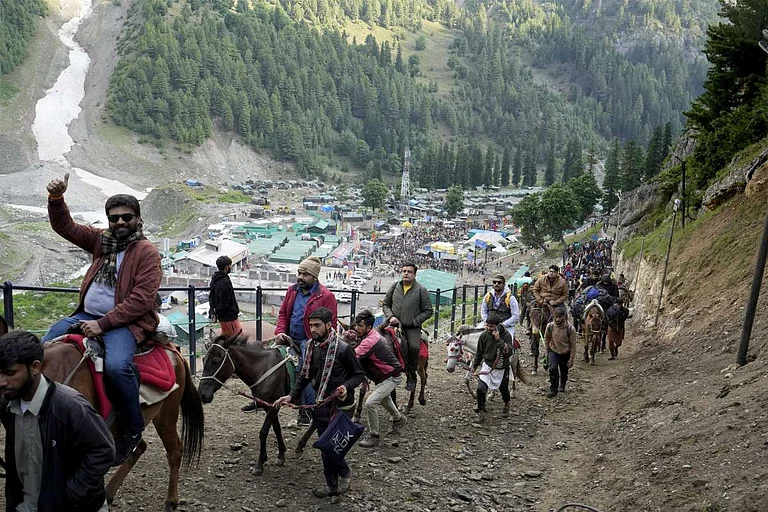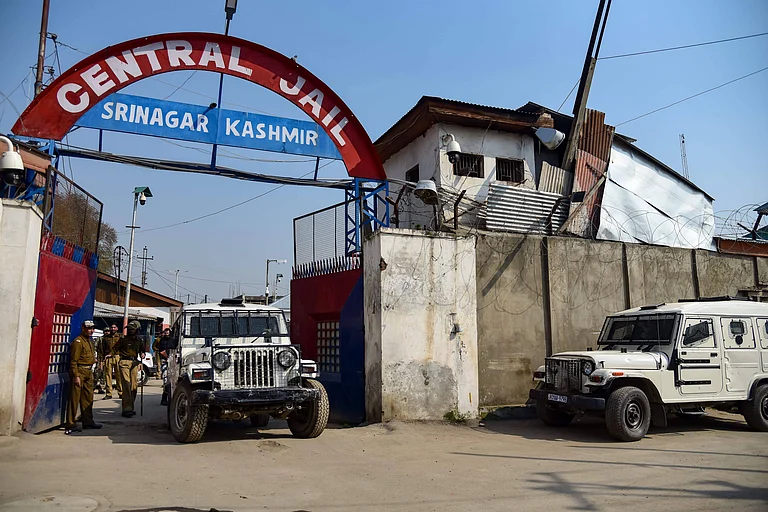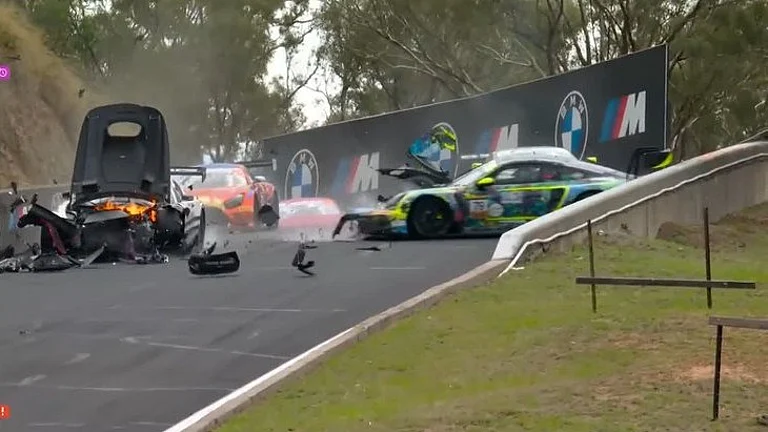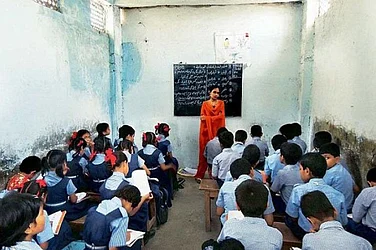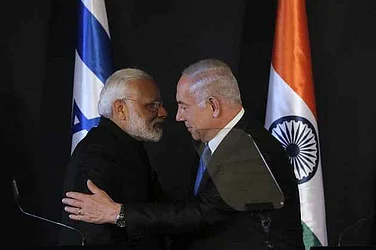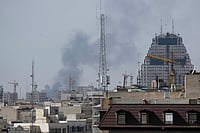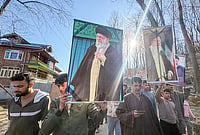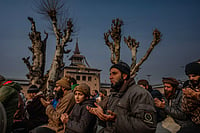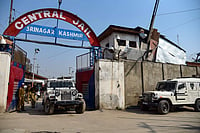Ex-serviceman Dilip Gupta stood in a queue for hours at the transit camp meant for Amarnath pilgrims in Srinagar, waiting for his turn to get a registration pass for the annual pilgrimage. The queue had barely moved a few feet over several hours, but then he was pushed out by the crush. He considered completing his yatra on the usual helicopter service, but that has been suspended this year.
Twenty-six tourists were killed in Pahalgam, a popular tourist spot, in an attack by armed militants on April 25, leading to heightened security measures, including curbs on the helicopter service.
But the security concern-driven arrangements have left pilgrims like Gupta stranded and feeling upset on day one of the Amarnath yatra, located in the scenic Kashmir Himalaya.
“There are no [proper] arrangements. I stood in a line for hours but got pushed out and now I cannot get the registration pass. There should have been more counters, more men to handle the yatra. Had I known the arrangements were so bad, I would never have come,” says Dilip Gupta.
Several other pilgrims, especially those who decided to register at the transit camp in Srinagar in person—instead of online—complained about the lack of counters leading to failure to register. Due to the onrush of visitors, the police resorted to lathi charge to control the crowd.
Dilip, like many others milling about at the transit camp, has been on the pilgrimage to the Amarnath shrine once before. This year, the number of visitors so far is lower—the April 22 tragedy is still a fresh memory—but the crowds at the transit camp are still large. In-person registration, due to suspension of helicopter service, is primarily responsible for this.
The Shri Amarnath Shrine Board (SASB), which regulates the pilgrimage, has said that both the routes to the shrine—via Pahalgam and Baltal—have been declared as “no fly zones” as part of a new multi-tier security arrangement. This has ended the helicopter service for pilgrims, causing a rush at the Srinagar camp.
Neeraj Sharma, from Uttar Pradesh, says he couldn’t get a pass despite waiting for hours in a queue. “I was looking to go for the pilgrimage by helicopter, but after its suspension, we are facing issues,” he says.
Some ended up with bruises after receiving lathi blows from the police on Wednesday. Some waited patiently for eight or even ten hours to reach the transit camp in the wee hours. But many could not secure passes for the onward journey.
Anil Chaurasia, another Uttar Pradesh resident, was upset by the action. “There are no facilities here for us pilgrims. We have been waiting in the harsh heat, and instead of helping us, we were lathi-charged,” he says. Raj Kumar Chaursia, from Uttar Pradesh too, says he was injured in the charge. “The authorities have been lax—people will not be able to make the pilgrimage this way,” he says.
It was a sad sight after the lathi charge, as some pilgrims showed how their registration forms were torn in the melee, while others ended up with torn clothes. But within the transit camp, men and women still soldiered on, standing in separate queues, waiting hopefully for their turn. Still, a large number of people were disappointed for not getting the yatra security passes.
Additional Deputy Commissioner, Srinagar, Adil Fareed, said that the allegations of the pilgrims about lathi charged were incorrect. “We have increased the number of counters and nearly 1,500 people are being registered daily.”
Some pilgrims said that while women members of their family got the registration passes, men couldn’t, which caused difficulties for them. “How can a woman go alone on the yatra?” asks Dilip, one woman in whose family was alone with a pass.







